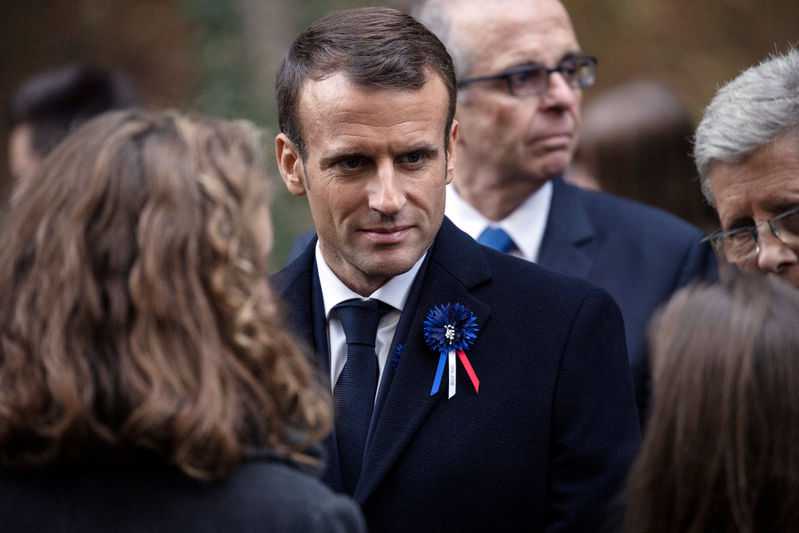Macron eyes European army to defend against Russia, U.S.
08 November, 2018

French President Emmanuel Macron called Tuesday for a “real European army” as the continent marks a century since the divisions of World War I, to better defend itself against Russia and even the United States.
Macron, who has pushed for a joint European Union military force since his arrival in power, said Europe needed to reduce its dependence on American might, not least after U.S. President Donald Trump announced he was pulling out of a Cold War-era nuclear treaty.
“We have to protect ourselves with respect to China, Russia and even the United States of America,” Macron told Europe 1 in his first radio interview since becoming president in May 2017.
“When I see President Trump announcing that he’s quitting a major disarmament treaty which was formed after the 1980s Euromissile crisis that hit Europe, who is the main victim? Europe and its security,” he said.
The Euromissile crisis — a mini-arms race within the Cold War that saw the U.S. roll ballistic missiles into Europe — was a major factor spurring the 1987 Intermediate-Range Nuclear Forces Treaty.
“We will not protect Europeans unless we decide to have a true European army,” Macron said in the interview, recorded Monday night in Verdun, northeast France, as he tours the former Western Front during week-long World War I centenary commemorations.
Faced with “a Russia which is at our borders and has shown that it can be a threat,” Macron argued: “We need a Europe which defends itself better alone, without just depending on the United States.”
Macron has spearheaded the creation of a nine-country European force that would be capable of rapidly mounting a joint military operation, an evacuation from a war zone, or providing aid after a natural disaster.
The nine countries’ defense ministers will meet in Paris for the first time on Wednesday, to start thrashing out details of how the force will operate.
The wider EU is also set to vastly expand its defense budget from 2021, allocating some €13 billion ($15 billion) over seven years to research and develop new equipment — up from less than €600 million in the current budget.
Bruno Alomar, a professor at the French War School which trains top military officers, said however that Macron’s vision of tight-knit European defense force was a long way off.
“The idea of creating a common strategic culture is not a bad one,” he told AFP.
“But there’s a massive gap between the European defense that Emmanuel Macron dreams about and the reality of very powerful disagreements between European partners.”
In an apparent reference to Russia, Macron warned that “intrusion attempts in cyberspace and multiple interventions in our democracies” required a united response.
